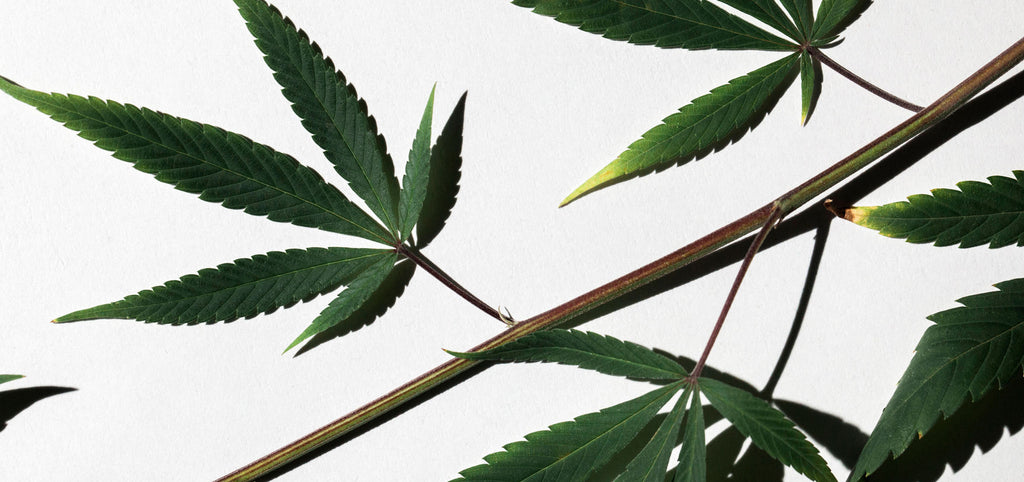Humans have been called “the anxious monkeys,” which makes sense if you think about it – we’re not terribly strong, we can’t run very fast, and we don’t have claws or fangs. Only constant vigilance has ensured our survival for tens of thousands of years.
It’s easy to forget that the pressures of modern life are very recent in the grand scheme of things. Our bodies certainly don’t realize that we’re not on the savannah anymore. So the mental and physical responses that used to serve Homo sapiens very well can quickly become maladaptive, causing problems for us – one of which is anxiety.
There is no shortage of things to be anxious about these days! Anxiety about work, anxiety about sex, anxiety about relationships, anxiety about money and family and and and… it can all feel like a multi-car pileup on our personal interstates.
To address this complex and often elusive problem, many people have begun to supplement their mental health support with herbal remedies, including CBD. And there’s good evidence that CBD can help a great deal – but to understand why, it helps to know how anxiety works in the first place.

How Anxiety Becomes Chronic
Anxiety serves a purpose. Early humans often faced immediate physical threats — like animal attacks and avalanches — and the human stress response evolved to keep us safe. Stress hormones like cortisol are essential to “fight or flight”, enabling us to act quickly and escape danger.
On the other hand, the stressors we encounter in modern life, like financial and relationship pressures, tend to be ongoing instead of immediately hazardous — but our bodies don’t know the difference.
If there’s no outlet for the stress response — no adrenaline-burning fight or tension-releasing flight – we don’t ever leave that “fight or flight” mode. This chronic stress trains our brains to feel anxious. It wants us to "remember" so we can anticipate (and hopefully avoid) more dangers in the future — but this can be physically and emotionally exhausting.
High levels of stress hormones are known to cause or aggravate many serious health problems, including:
- Depression
- Heart disease
- Digestive problems
- Weakened immune system
- Fatigue
- Weight gain
- Headaches
- Muscular tension
- Endocannabinoid imbalance
Although a genetic predisposition to mental illness can be a major factor, if you’re under enough stress for long enough, you may develop chronic anxiety even if nobody else in your family has.
CBD’s Impact On Anxiety
CBD affects the body in numerous ways, and studies suggest that cannabidiol’s influence on neurotransmitter systems, neural regeneration and a phenomenon called “extinction learning” are all keys to its efficacy.
These mechanisms include:
Effects on serotonin. Most people think of serotonin as the brain’s “happy juice,” but it’s a complex chemical with many roles. Too much serotonin can be just as damaging as too little. CBD, like some pharmaceutical drugs, binds to the serotonin receptor that is thought to play the largest role in moderating anxiety.
Effects on the endocannabinoid system. Your body produces cannabinoids that are structurally similar to the phytocannabinoids found in cannabis (as well as some other plants, like Kava Kava and cardamom). Your body’s version of these chemicals, called endocannabinoids, play a major role in many essential functions, both physical and mental.
Under stress, the body’s system of cannabinoids and corresponding receptors can become unbalanced and dysregulated. CBD may help restore balance to the ECS by boosting production of the endocannabinoids that are necessary for maintaining so many essential processes.
Effects on neural regeneration. Chronic stress can damage neurons (brain cells). Over time, it may even shrink the brain. It was long thought that once neurons are gone, they’re gone forever, but recent research indicates that’s not necessarily true, and certain parts of the brain can actually regrow neurons that have been damaged or destroyed. Studies suggest that CBD may encourage neural regeneration, especially in the hippocampus — a part of the brain associated with memory, learning and mood.
Effects on extinction learning. Ideally, we can “unlearn” anxiety triggers when there’s nothing left to fear and our environment is safe. In cases of chronic, cyclical stress, this is a challenge. Studies on both rodents and humans indicate that CBD can facilitate the extinction learning process, supporting us to let go of anxiety triggers more readily.

Should You Treat Your Anxiety With CBD?
As we’ve seen, constant stress is an unfortunate fact of modern life. It impacts mental and physical health in so many ways that a multi-pronged, holistic approach may be most effective for managing anxiety. Even medical doctors have begun recommending that patients supplement traditional treatment approaches (like talk therapy and prescription medication) with lifestyle practices like yoga, meditation, time in nature, and other relaxation techniques.
So if you choose to supplement with CBD, it’ll work best as part of a comprehensive plan. Consult with your doctor before beginning any new regimen, especially if you’re already taking prescription drugs for anxiety or depression – similar to grapefruit, CBD can interfere with your body’s ability to metabolize certain drugs properly, making them either weaker or stronger.
Always choose products from reputable companies that are transparent about their sourcing, ingredients, testing, and manufacturing process.
Hope for Recovery
If you’ve been dealing with chronic stress and anxiety for long enough, it can take time to reverse the damage. A behavioral approach can go a long way towards creating new mental habits, but you might get there faster if you allow your brain to rebuild and relearn on a deeper level. CBD could have a significant positive impact on this process, helping you to feel better sooner.
And curiosity – another essential trait of “the anxious monkeys” – can be a natural instinct turned ally, if we use it to pursue knowledge, resilience, and integrative treatment modalities that work best for us.
Want more? Sign up for our newsletter
By entering your email, you are agreeing to our terms and conditions and understand our privacy policy.









